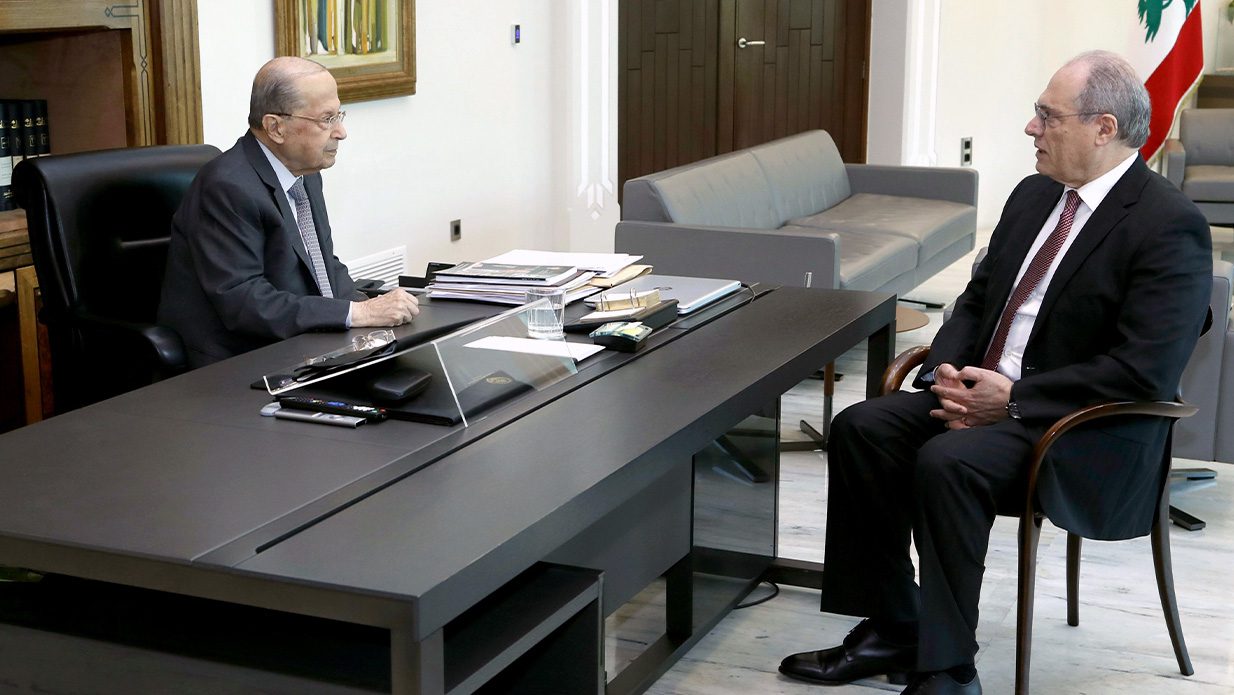Lebanon and the International Monetary Fund (IMF) are close to completing technical talks and have begun official negotiations for the monetary and economic policies of a bailout plan, Deputy Prime Minister Saadeh Al-Shami told reporters following his meeting with President Michel Aoun.
Al-Shami hopes an IMF delegation will visit Lebanon soon. Prime Minister Najib Mikati has set a deadline for signing the IMF memorandum of understanding by the end of 2021, according to Central Bank Governor Riad Salameh.
“Our goal is still to reach a preliminary agreement before the end of the year, and to arrive at a final agreement in January,” said Al-Shami at the Presidential Palace in Baabda. “Negotiations with the IMF depend on several axes, including fiscal policies or the budget. The budget is an essential element of negotiation and the Minister of Finance is working on preparing it as quickly as possible.”
Al-Shami said other axes include the issue of Lebanon’s multiple exchange rates, monetary policies, and the banking and financial sector. “Everybody is working within their jurisdiction, but we cannot announce a plan until it is completed.”
Just two days ago, Salameh said the government and banks are still incapable of presenting unified numbers to the IMF on the estimated losses in the financial system—with a financial audit being a key demand from the IMF.
‘We are, at this stage, still in the process of gathering the data that is requested by the IMF and the issue of the losses—the number of these losses—are not going to be a hurdle for these negotiations, at least from the side of the central bank,” said Salameh.
Disagreements in Lebanon over the size of the central bank’s losses have remained a large point of dispute between members of the ruling class, thwarting progress with negotiations for an IMF bailout plan in July 2020.
The central bank governor added that IMF’s funding is crucial for Lebanon to be able to overcome its crisis, as it would unlock essential resources and provide the country with reforms.
When asked about the audit, Al-Shami said that “work is being done to complete it.”
Since the onset of the crisis in 2019, Lebanon’s local currency has lost more than 90 percent of its value. Today, it trades on parallel markets at LBP 24,600 for every one dollar—while the official exchange rate remains a meagre LBP 1,500.
Poverty and inflation have both skyrocketed, with the latest UN statistics revealing that 80 percent of the population currently lives below the poverty line.
Salameh has been accused by the public of embezzling central bank funds to enrich himself and his inner circle, although he has repeatedly reiterated denials of wrongdoing. Recently, he commissioned an unnamed firm to audit central bank accounts and said it exonerated him of any blame.
Back in April, Swiss authorities launched an investigation into Salameh’s suspected embezzlement and money laundering worth $300 million.


